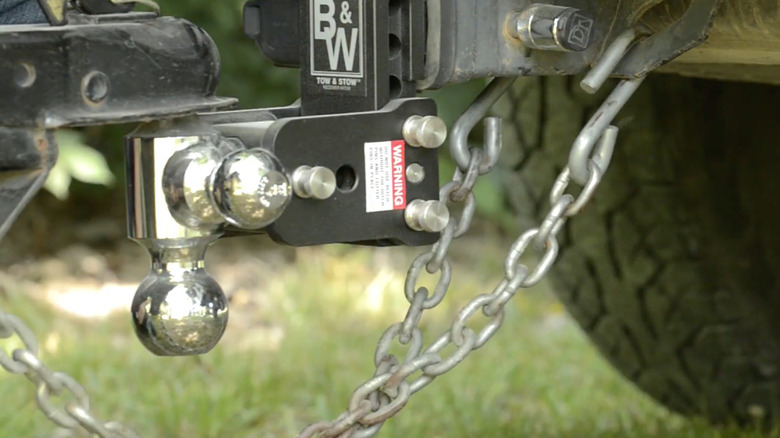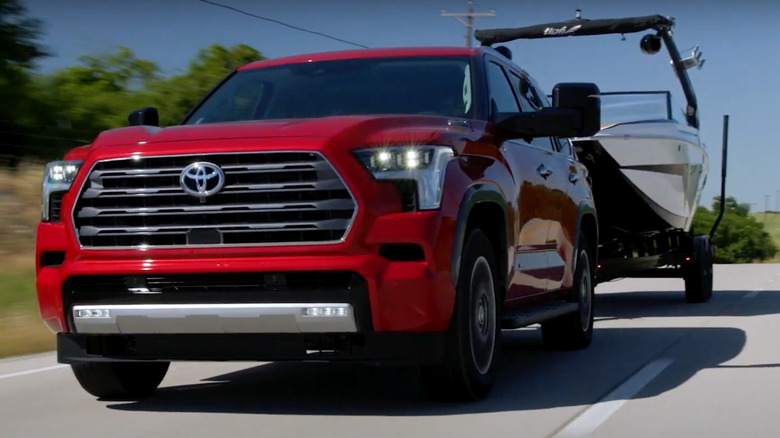What Is The Correct Way To Hook Up Trailer Chains When Towing (And Why Is It Important?)
The worst thing that could happen when towing a trailer is losing connection on the highway. Depending on your speed and traffic, it could feel like something out of a "Final Destination" movie. So you need to know how to safely tow a trailer and minimize damage in the event of detachment.
Firstly, before attaching the chains, verify that the attachment points are correctly placed and rated for the intended load. They should be rated to meet (or exceed) the weight of what you're pulling. Ensure each chain is positioned correctly and attached to its designated spot on both the trailer and tow car. Check that S-hooks point away from the vehicle and towards the trailer –- this helps prevent the hooks from falling off in case of an unplanned unhitching. Secondly, cross the chains so that they form an "X" pattern underneath the hitch, creating a sort of cradle to hold the tongue. Avoid tightening things up. The chains need to have just the right amount of slack to allow for full turns when towing the trailer. On the flip side, excessive slack can lead to dragging or, worse, contact with the ground.
A rule of thumb is to have the chains hang slightly without touching the surface of the road. Loose chains can cause sparks and lead to fires, especially in heavily forested areas. The chains and pavement should typically have a clearance of 3 to 5 inches. If you have to shorten the chains, don't twist them. Instead, use approved shortening devices, such as quick links or shackles. Twisting reduces strength and can lead to failure under load. Tuck away any excess chain to prevent it from snagging or causing damage. For extra precaution, use hooks with safety latches.
Why is a proper chain hookup important?
The primary purpose of the trailer chains is to serve as a backup connection to the trailer in case of disconnection or hitch failure. These chains are designed to prevent the trailer and tow car from completely detaching and turning into a road hazard. The cross pattern formation helps keep the trailer aligned behind the tow car, which not only enhances safety but may also impact your range and fuel efficiency.
Most U.S. states require safety chains by law. Failing to hook them up properly can lead to problems with authorities in case of an accident. Still, towing a trailer without chains is a huge risk, not just to you and your vehicle, but to other road users as well, and can lead to fatal accidents and damage to property. It's not just about having trailer chains, but having them hooked up correctly. Improperly hooked-up chains can fail when needed the most. Something you definitely want to avoid if you're cruising on a dangerous highway.

